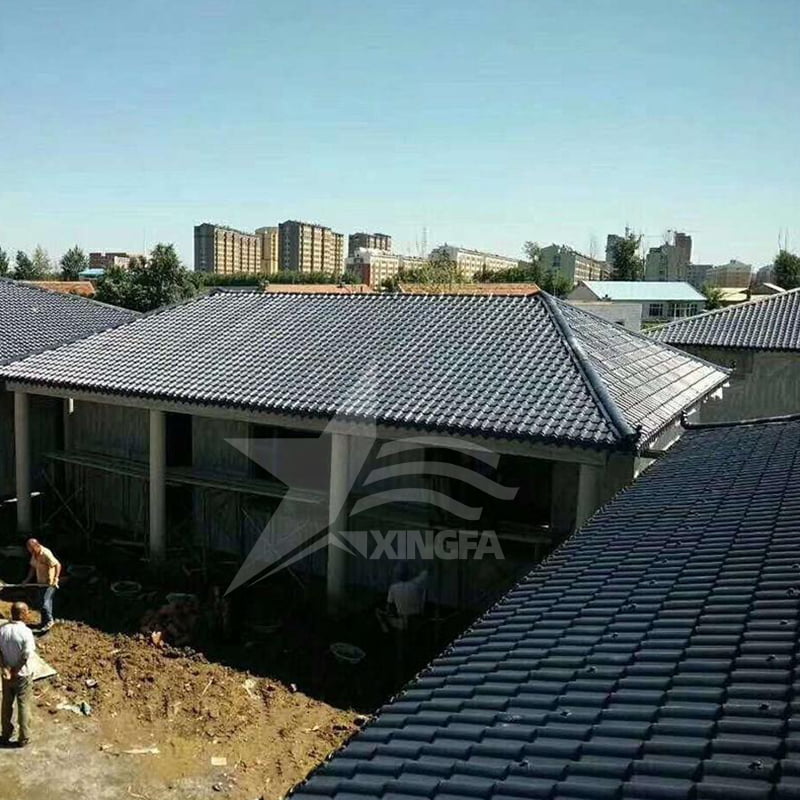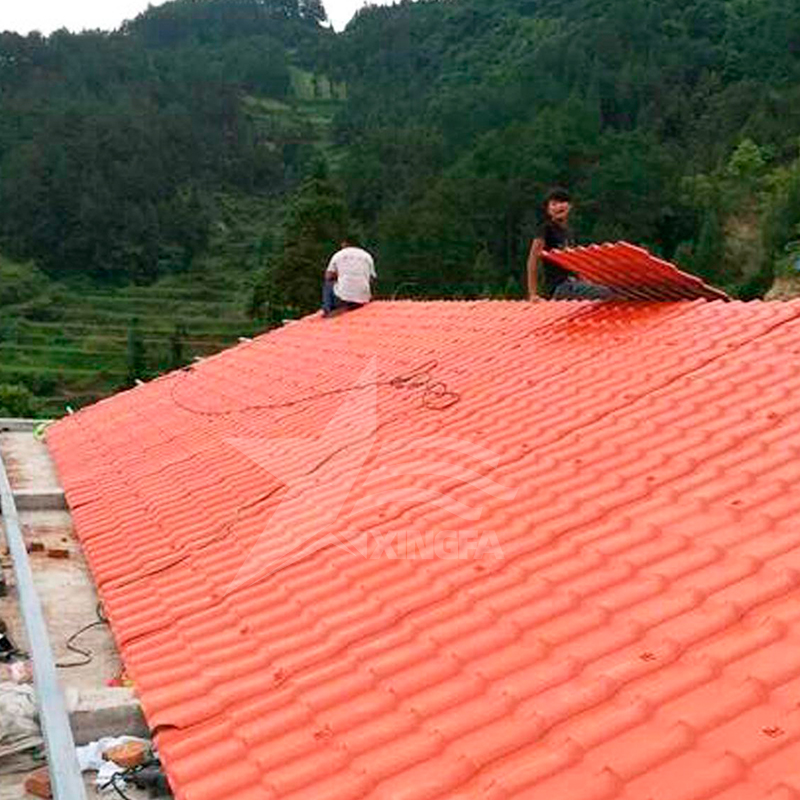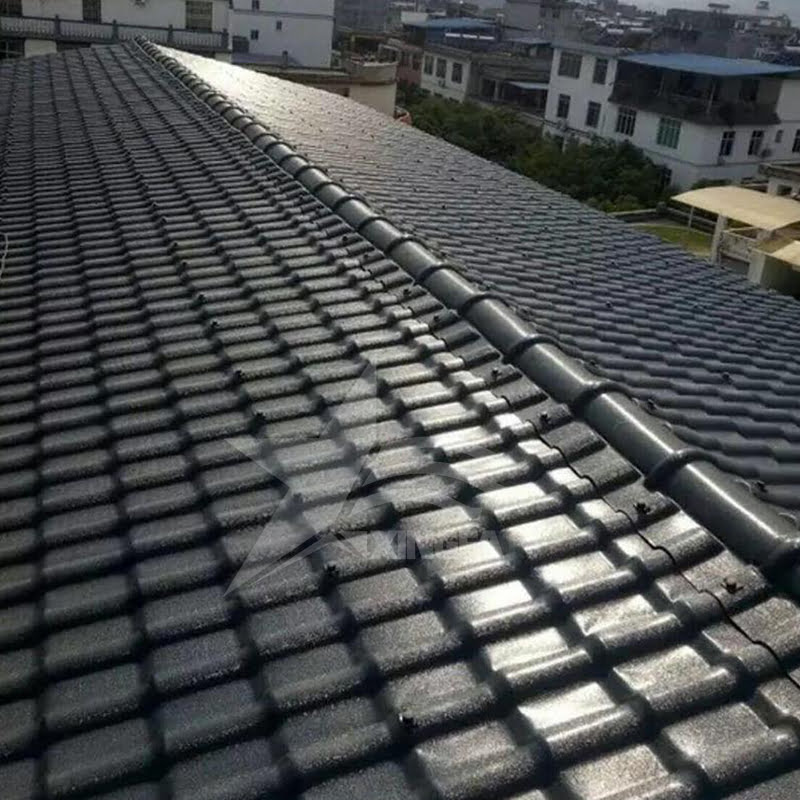The onset of high temperatures is not only a challenge for breeding farms, but also a test of the living environment of small animals. In the scorching summer, the high temperature is not only unbearable, but also troublesome for small animals. Their regulatory functions are poor, their immunity is low, and they are prone to heatstroke and illness. Therefore, farm owners often have a headache on how to cool down the small animals.

However, there is a solution that is gradually being adopted by livestock farms, and that is the installation of synthetic resin tiles. Synthetic resin tiles are known for their excellent thermal insulation properties. The thermal conductivity of resin tiles is only 0.325W/m.k. In comparison, the thermal conductivity of clay tiles is about 1/310 of resin tiles, cement tiles are 1/5, and 0.5mm thick color steel tiles are 1/200. . This means that after using resin tiles, the speed of heat conduction is greatly slowed down, which helps to maintain a constant temperature in the farm environment.
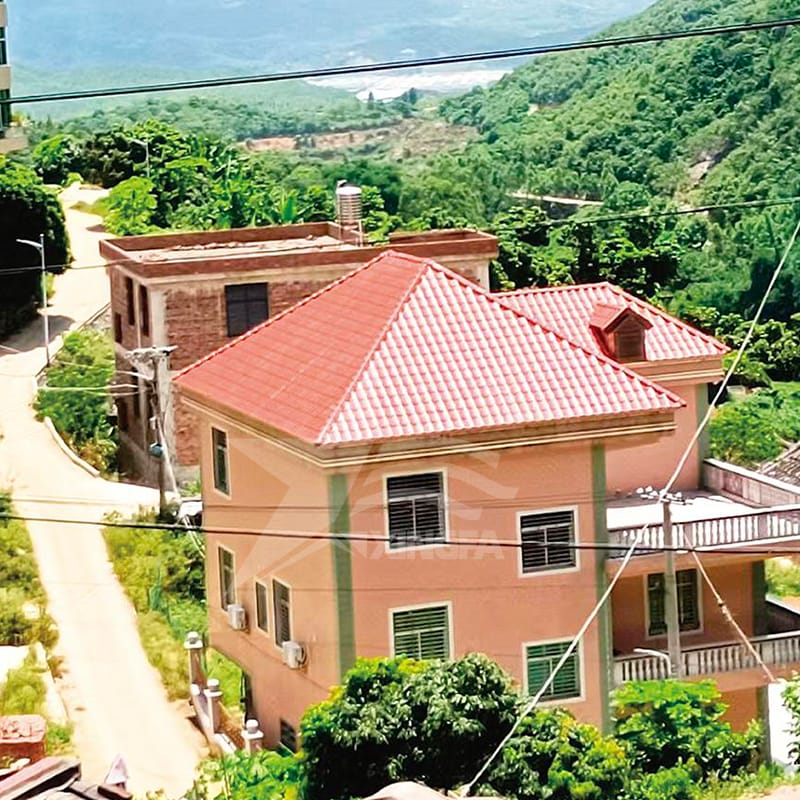
The benefit of installing synthetic resin tiles in farms is not only its excellent thermal insulation performance, but also its lightness and ease of installation. Even if you do not consider adding an insulation layer, the thermal insulation effect of resin tiles is quite ideal. If you are pursuing higher comfort, you can lay a layer of thermal insulation cotton before installing the resin tiles to further improve the thermal insulation effect.
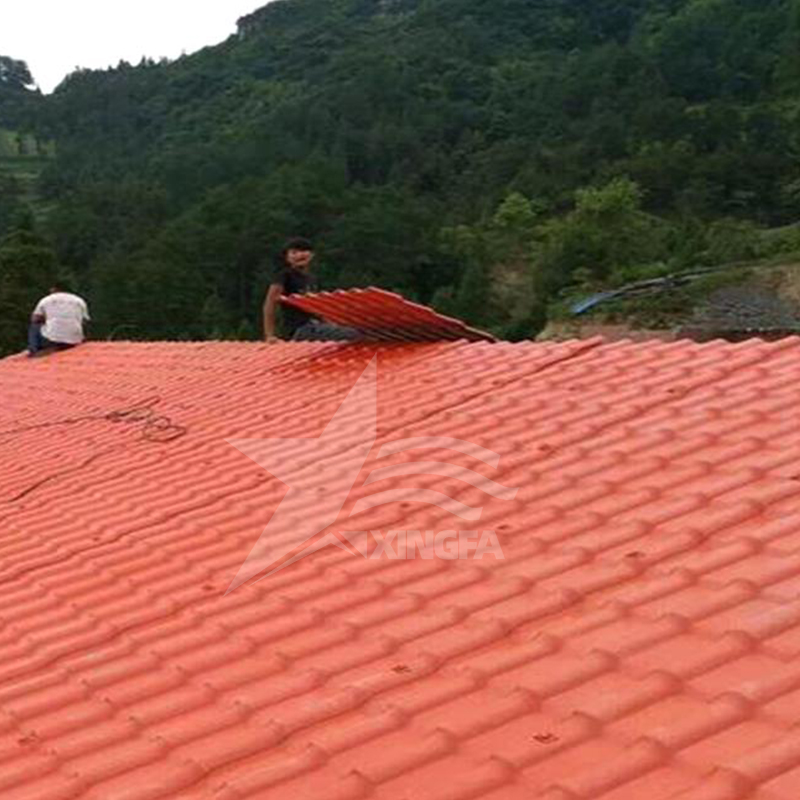
The installation of synthetic resin tiles in the breeding farm not only creates a comfortable and stable living environment for the small animals, but also provides better conditions for the production of the breeding farm. As climate change intensifies, hot weather may become more frequent. Therefore, taking effective measures to protect small animals from the suffering of high temperatures is not only a respect for animal welfare, but also an important measure for the sustainable development of the breeding industry.



